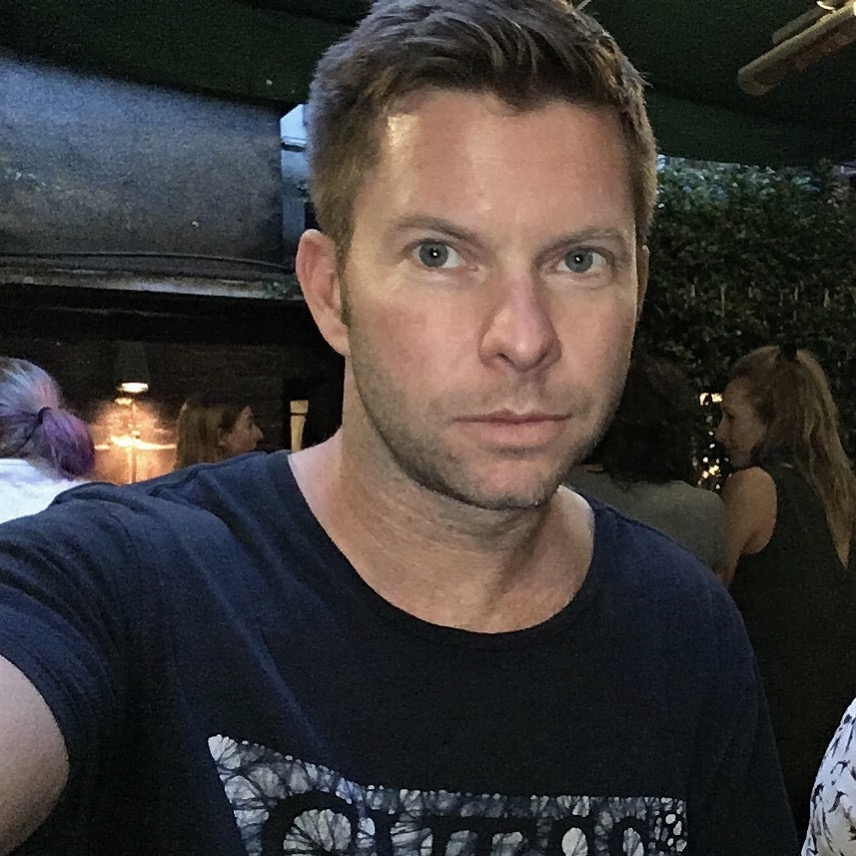ASK & DISCUSS
INDEXWant to know what type of films were most submitted into the Shore Scripts Screenwriting Competition last year?
10 years, 2 months ago - Shore Scripts
The Shore Scripts Screenwriting Competition have been lucky enough to add screenwriting guru Lucy V Hay to our already awesome panel of Judges. She asked us if there was a particular type of script that we kept on seeing year on year, so we asked one of our top readers, Lee Hamilton to expand - (the full article can be found on Lucy's brilliant blog Bang2write here - http://www.bang2write.com/2015/06/a-look-in-the-spec-pile-top-6-submissions-in-2014-shore-scripts-screenwriting-competition.html)
Ever wondered what kind of scripts other people submit into screenplay contests? Is there a genre or plot type they see time and time again? How can you buck the trend and make your script stand out? I personally read about fifty of the 2014 quarter finalist scripts from last years Shore Scripts Screenwriting Competition, with an eye to put roughly a fifth through to the next round. Here’s an insight into what I found.
The top 3 most submitted GENRES
1.Period – 24% of the scripts I read were era pieces ranging from Roman history right up until the 1970’s. There’s actually no such thing as a pure period genre as the ‘period’ simply refers to the time rather than the plot so it kind of has to be combined with another genre. But this means it’s very versatile indeed. Each script was completely different and there was a high level of originality to be found in this category. Some were hard fast dramas; some were comedies, and some romantic. Most, not all, were based on real events, and had been suitably well researched, but this often led to a tendency to over embellish in the scene direction. Other pitfalls included all the characters sounding alike, or when the writer was writing from personal experience and although the story may have been interesting to them, it didn’t necessarily make a great movie.
2.Drama – Unsurprisingly 20% of the scripts I read fell into this category (more if you include the period dramas). This is a popular genre for writers, although not necessarily for audiences. When was the last time you heard someone say “Ooh, I fancy watching a right good drama at the pictures tonight”? This doesn’t mean dramas are bad by any means; drama is the backbone to compelling stories. We don’t go looking for it because we expect it in every movie. Most of the dramas I read were centred on familiar family and relationship dramas, but placed within an unusual setup. Dramas are great at building a deep connection with the audience but what was often lacking was enough of that strong and engaging emotion coming off the page. Equally lacking was any actual drama! (a surprisingly common mistake) And promising premises didn’t always deliver on the emotional and dramatic content needed to pull the protagonist along.
3.Thriller – I was pleased to find that 12% of the scripts were thrillers, even though it’s not a particularly favourite genre of mine to watch. What was impressive about this category was again, the originality of the concepts. Often combined with a crime plotline and a heavy element of mystery, this created intriguing hooks, which made you want to know more. Subsequently I put through more thrillers than any other genre into the next round. Tension, suspense, plot twists and reversals are the much needed elements to pull off a successful thriller. What’s difficult to handle is deciding where and when to reveal information to the audience. The writer needs to find the right balance between combating predictability and creating an overly complex and confusing plot. While it’s important to maintain mystery, there’s nothing worse than baffling the reader unnecessarily.
Don’t now automatically think that you shouldn’t submit any of these genres into a competition because the judges will be sick of the sight of them. Strong genre pieces sell well, but the ones that really stand out are where something new has been brought to the genre. What struck me was the fantastic variation of plot types within these genres, all with a high degree of originality in their concepts. But which plot types occurred most frequently?
The top 3 most submitted PLOT TYPES
1.Rites of Passage – 22% of the plotlines centred on a relatable problem, such as the relationship or family drama (hence the percentage mirroring the amount of scripts that fell into the drama category) where the protagonist is avoiding one problem by chasing another. It’s essentially where the main character is trying to achieve a misguided goal, keeps failing all the time, then finally begins to change, learn, and eventually discovers that what they thought they wanted, isn’t the emotional ‘need’ they inwardly desired all along. A lot of the scripts that didn’t make it any further fell foul of not developing a clear ‘goal’ for the protagonist or didn’t generate big enough stakes for them. Often there weren’t any huge consequences for the characters and this made their journey and ‘goal’ lack urgency or importance. Writers of this plot type need to make sure that the audience is really rooting for their main character.
2.Buddy Love – 18% of the scripts focused on romantic relationships or featured two main characters instead of just one. These scripts relied largely on a “will they or won’t they?” question, which was either the characters getting together romantically or uniting as a team to achieve a pivotal goal. More often than not, Buddy Love plots are comedies, so having a fresh take on both plot and genre was what we were looking for (notice how we keep coming back to mentioning original concepts?). The dynamic between the two central characters also has to be a compelling one. This was a hard category to assess, as there were plenty of high concept ideas submitted, which all could easily have gone through if there had been enough space. Plus comedy is such a personal thing. You either think it’s funny or you don’t and a lot of the scripts didn’t do it in terms of making the audience laugh.
3.Golden Fleece – 16% fell into this category, which is almost like a plotline that potentially everything fits under. What’s central to the Golden Fleece however, is the inclusion of a team. That team, led by a central character, has to overcome obstacle after obstacle in order to reach a clear and identifiable goal. There has to be a good mix of characters in the ensemble and each has to have their shining moment too. What didn’t work too well in the submissions was that the goal was often a weak one. In some instances it was hard to care whether the goal was reached or not as it just wasn’t dramatic, hard to achieve, or interesting enough. A boring goal meant the overall concept wouldn’t grab audiences, let alone keep them gripping their seats.
When trying to assess what worked and what didn’t, what we saw a lot of and what was rare, it becomes obvious that even though there was perhaps more of one genre than another, they all had a fantastic variety of plot types within each genre. Any genre can be mixed with any plot type, so there’s really an unlimited amount of stories out there waiting to be written.
Screenwriters hear this all the time, but what people are really looking for is a strong original concept that engages emotionally with the audience. But this is just the basis of a great script. All of the other elements from dramatic structure, believability, clear character motivations and all the rest, still need to be prevalent in your script too. But please believe that a good story will always sell. Trust me. I’m a Script Reader!
For further details on the Shore Scripts Screenwriting Competition go to www.shorescripts.com. The Regular Deadline ends 31st July!
Only members can post or respond to topics. LOGIN
Not a member of SP? JOIN or FIND OUT MORE
10 years, 2 months ago - Paddy Robinson-Griffin
Very interesting whenever anyone relays real statistics about a world with so many suppositions and superstitions!
10 years, 2 months ago - Dan Selakovich
I agree with him about thrillers. I've read so many, and more often than not, what the writer thinks is mystery is actually confusion or frustration on the part of the reader. I really think at the core of lazy writing is that the writer fears they will run out of ideas, so they stretch an idea beyond its breaking point. Especially pages 30 to 80.
10 years, 2 months ago - Paul W Franklin
Interesting point about period scripts having characters that all sound the same. I've been guilty of that. You have a bunch of people in 'Ye olden times' and it's surprisingly hard to make them sound different.
10 years, 2 months ago - John Lubran
Definitely an interesting set of statistics.
Also worth considering is that statistics are created within a given paradigm. I have to admit that I had never heard of Shore Scripts but a quick visit to the website reveals an association with about one fraction of a percent of the great and the good and another fraction of a percent of production companies. As excellent as the provenance of these statistic are, at the end of the day they are still only the statistics of a very narrow section of a much bigger spectrum.
Apart from it being an interesting exercise I'm not at all sure it means very much.
"Lies, damned lies and statistics"
attributed to Benjamin Disraeli by Mark Twain but disputed





